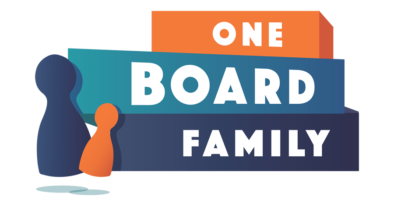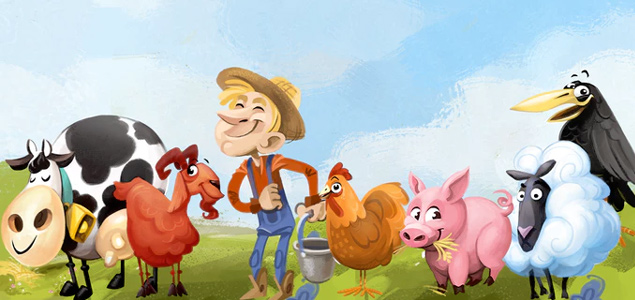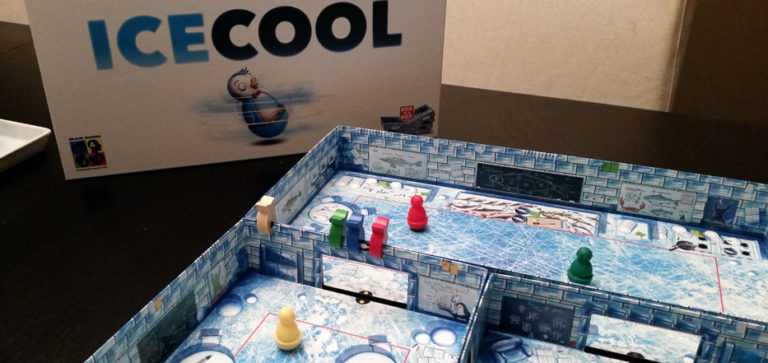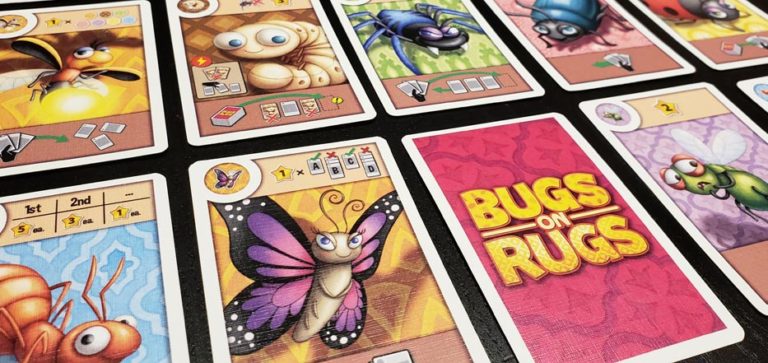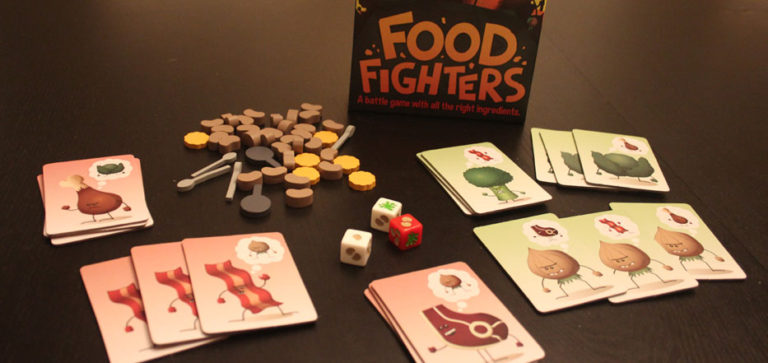Going back to school looks so different for all of us this year. Some are returning to modified class rooms while some will continue learning online for the foreseeable future. This may even be a turning point for your family to look at home schooling as an option.
Since “back to school” looks different for everyone this year, we thought it would be good to take a look at some of the great games that can lean into education. Whether your kids will be learning from home or spending 8 hours in a class room, these are a couple games that can reinforce math, reading, science and other areas of education.
Math
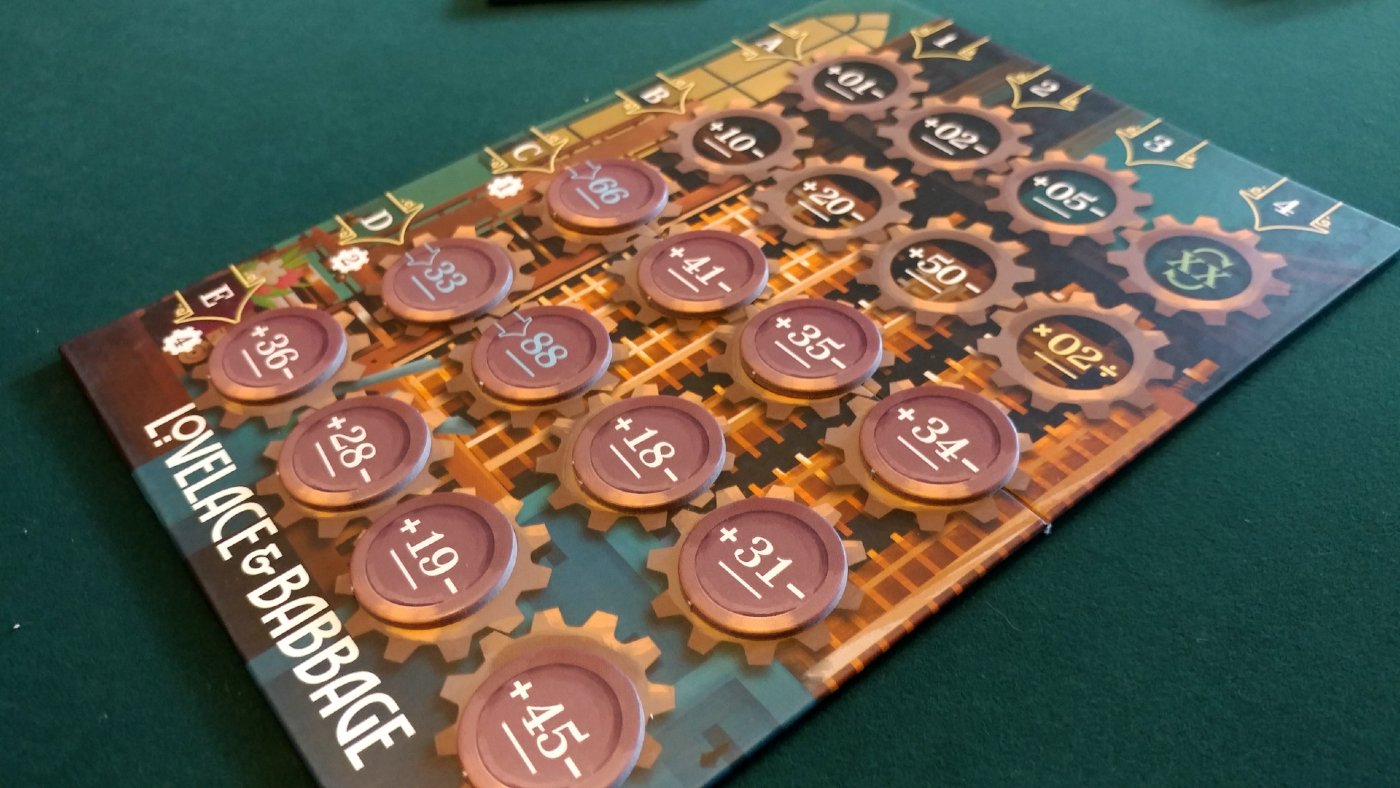
Lovelace & Babbage
Lovelace & Babbage is a math-based programming game from Genius Games. The game reinforces basic math skills that would be a good fit for late elementary through early high school students. Ric really enjoyed how the game requires players to perform mental math to accomplish goal cards that give influence points. Genius Games even tied the game to what most consider the first computer programmer, Ada Lovelace. Lovelace & Babbage is a great way to game and encourage math skills that the kids are learning in school.
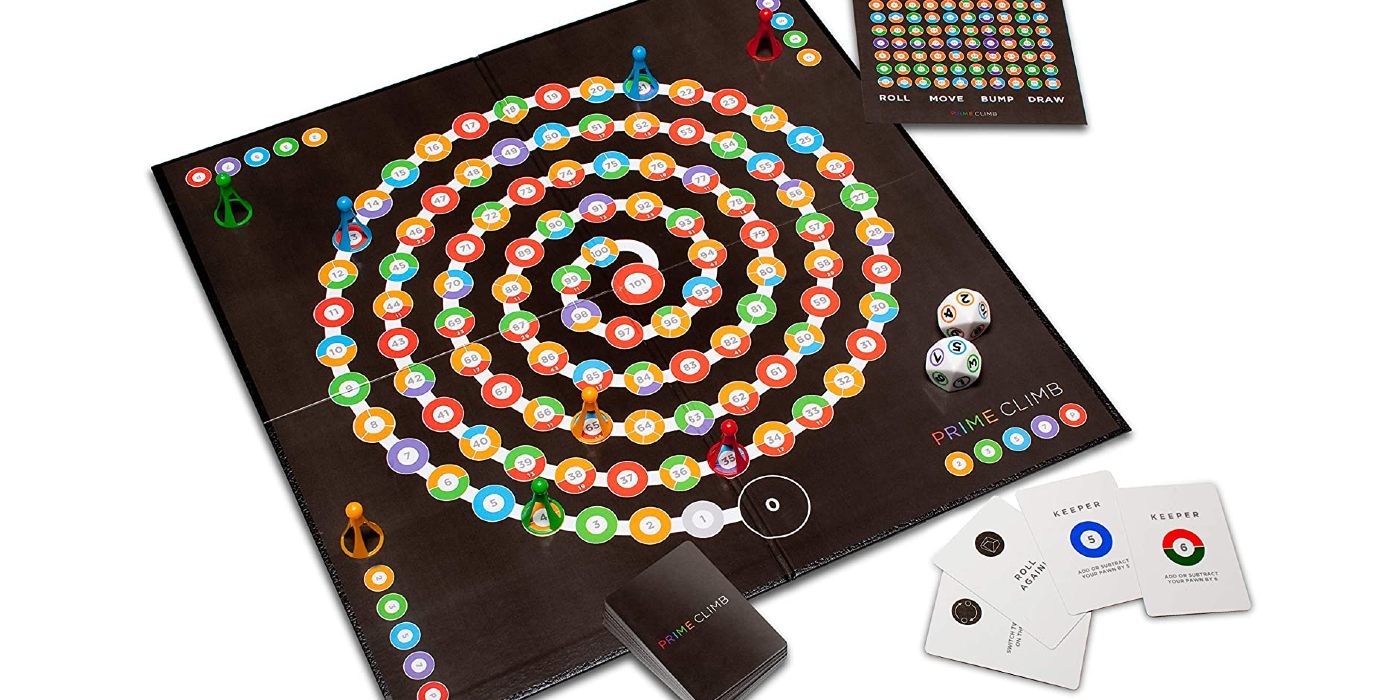
Prime Climb
The game Prime Climb is an interesting game that we’ve recently found out about. This strategic math game came from the mind of two mathematicians that wanted to find a way to merge math equations with game mechanics. Players roll two 10-sided dice to make their way around the spiral board, climbing to the 101 position in the center of the board. There are cards that give rules on how the players can move as they move back and forth through the spiral. Prime Climb is teaching players about fractions, division, prime numbers and prime factors. The game scales well based the area of math your kid is focused on. This can be a big win for families that want to play together.
ELA (English Language Arts)
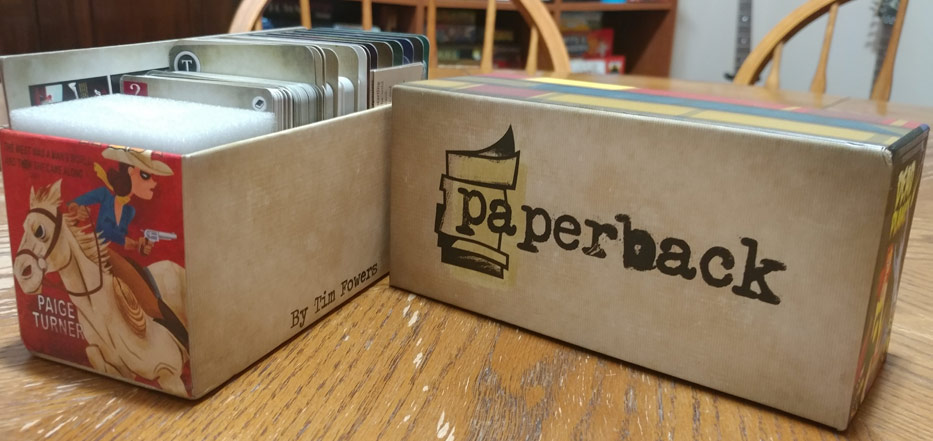
Wordy Card Games
Word building games are some of the best ways to flex those language muscles. Ric has been our resident “word game” reviewer. Over the years games like Paperback, Movable Type and Composition are excellent ways to flex spelling skills with the family. Paperback is a deck builder that will have familiar mechanics for most gamers. Composition has this similar deck building mechanic and was a huge hit for Ric when he previewed it in 2019. No matter which of these word building, card drafting games you pick, these card games will encourage a more diverse vocabulary.
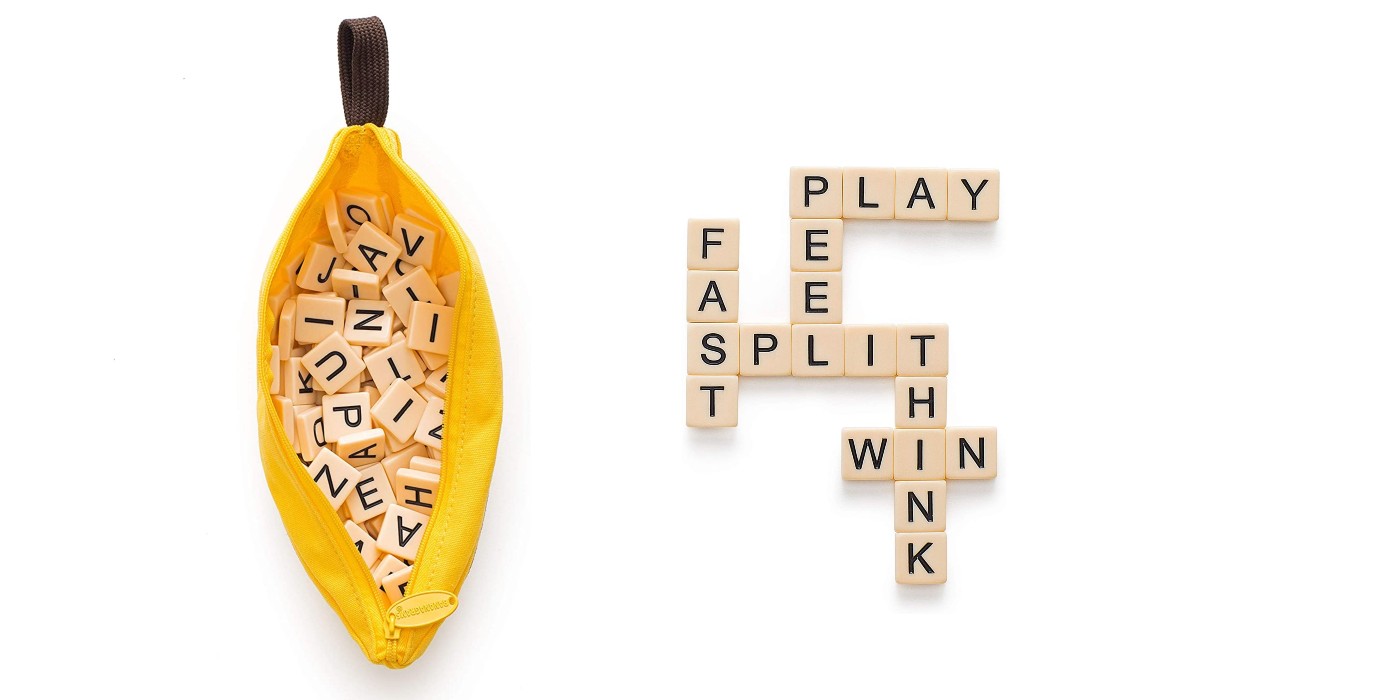
Bananagrams
The first time I played Bananagrams, I remember thinking, “well, Scrabble will never hit the table again”. Players are using lettered plastic tiles to create words in this imaginary grid space in front of them. Be as unique as you want with your words and make sure your words intersect to keep everything connected. When you have used all your letters, you and all your opponents draw a new letter. The game really promotes a diverse vocabulary and challenges you to connect words as new letters are acquired. Bananagrams is a great word game for any age.
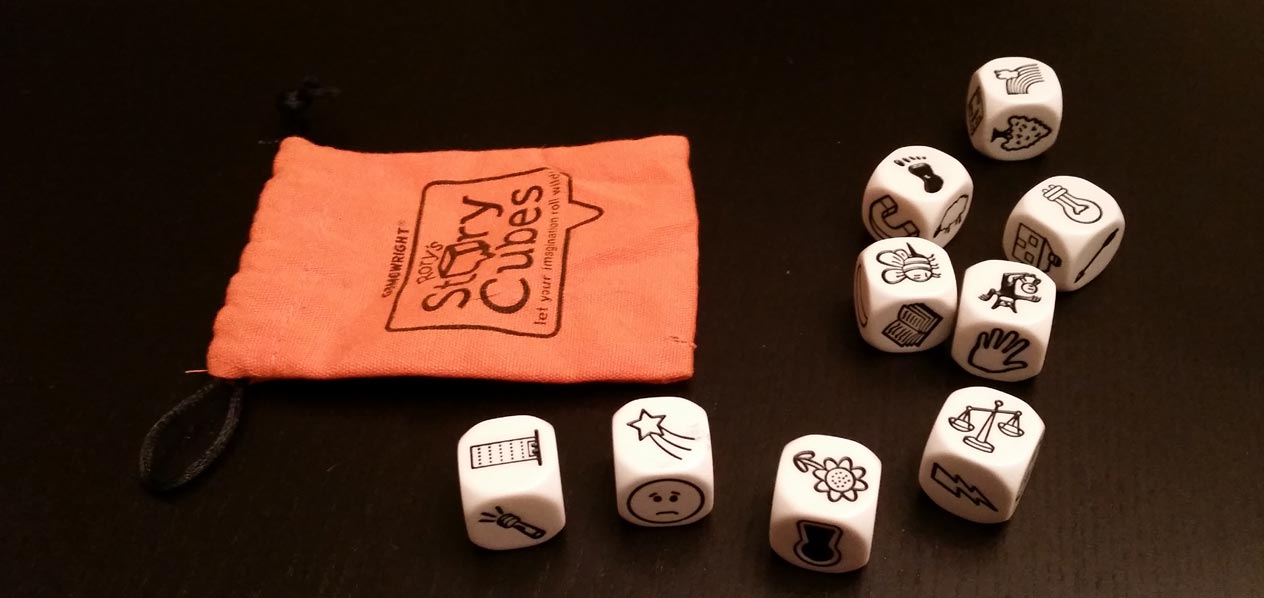
Story Cubes
When my kids where a little younger, my oldest daughter kept a set of Story Cubes in her purse. We would roll the dice and craft ridiculous stories when we would go out to eat with the family. Over the past decade, tons of different sets of Story Cubes have hit the market. These dice that are filled with symbols are a great starting point for creative writing activities and encouraging imagination. Just rolling the dice and encouraging your child to build a story from the icons is sure to produce some wild tales.
Science
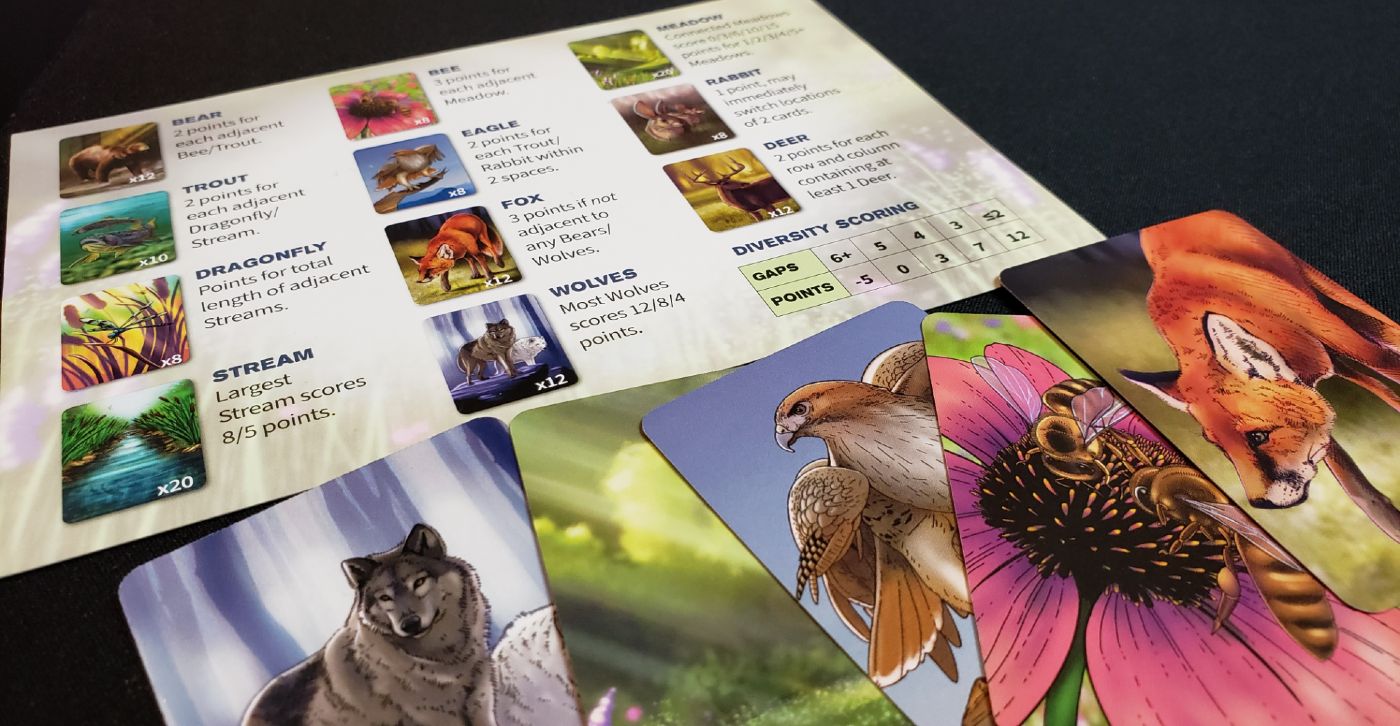
Ecosystem
There are some great games on the market that focus on the area of science that may be a great learning tool for your family. Recently, our preteen daughter has been in love with Ecosystem from Genius Games. This is a card drafting game that will feel a little like Sushi Go. Players build an ecosystem made up of 20 cards over the course of 2 rounds. Each card scores in specific ways which make sense to where they are in the food chain or what ecosystem they flourish in. The trout score points off the stream while the fox only scores if they are two cards away from their predators (bear and wolves). Ecosystem is a great card game to add into the mix when talking about why ecosystems matter and the importance of wildlife having a place to live.
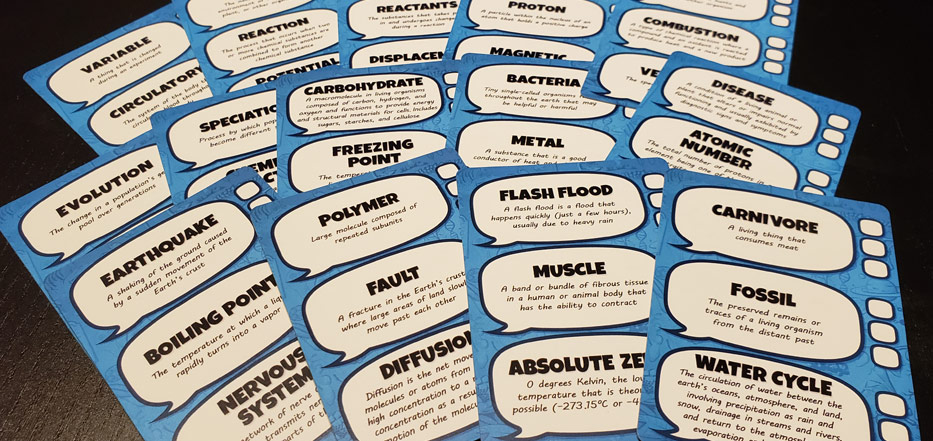
Nerd Words: Science
If you’re looking for a game to reinforce science vocabulary, the game Nerd Words: Science might be just what you’re looking for. Players divide into two teams, trying to guess the correct words within four guesses. The clue giver has some specific guidelines on sharing clues and even gets to bet on whether they will make a correct guess during their turn. If you have teens in the house, these words will be familiar from their middle and high school science lessons. Nerd Words: Science will reinforce scientific vocabulary and make you realize how much of your science knowledge you’ve lost since becoming an adult.
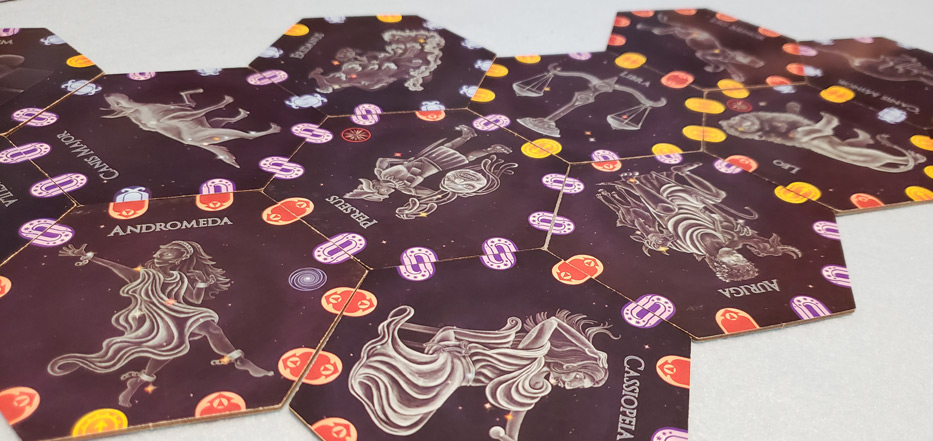
Constellations
Gaming isn’t rocket science but apparently rocket scientists like to game. Constellations is a game created by a couple scientists who work at NASA and is one of 4 games published by Xtronaut. In Constellations, players collect star cards and eventually spend these cards to place constellations into the night sky in the center of the table. The cards in the game are filled with scientific facts about stars. Players are awarded bonuses for placing constellations next to their actual real-world neighbors. This is an accessible game for anyone learning about astronomy. Not to mention that half of the rule book is a guide to astronomy and is fascinating to read.
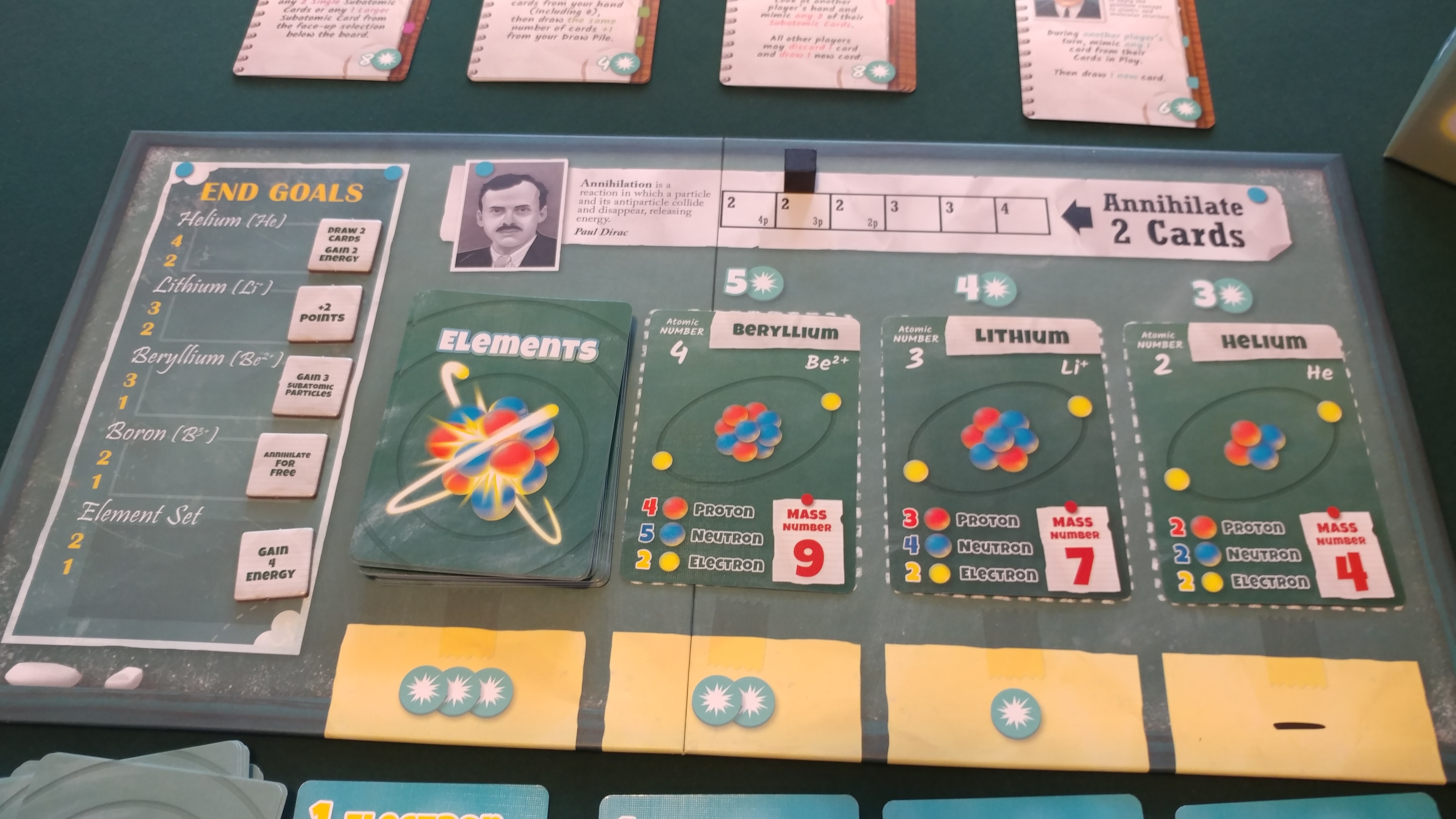
Subatomic
Subatomic is a deck building game where players are building elements out of protons, neutrons and electrons. You’ll gain stronger cards during the game allowing you to create new elements and complete goals to earn victory points. When Ric reviewed Subatomic earlier this Summer, he was impressed at the level of accuracy that was squeezed into this box. Genius Games is creating really solid games that can reinforce the lessons are kids are learning in class.
Other Fields of Study
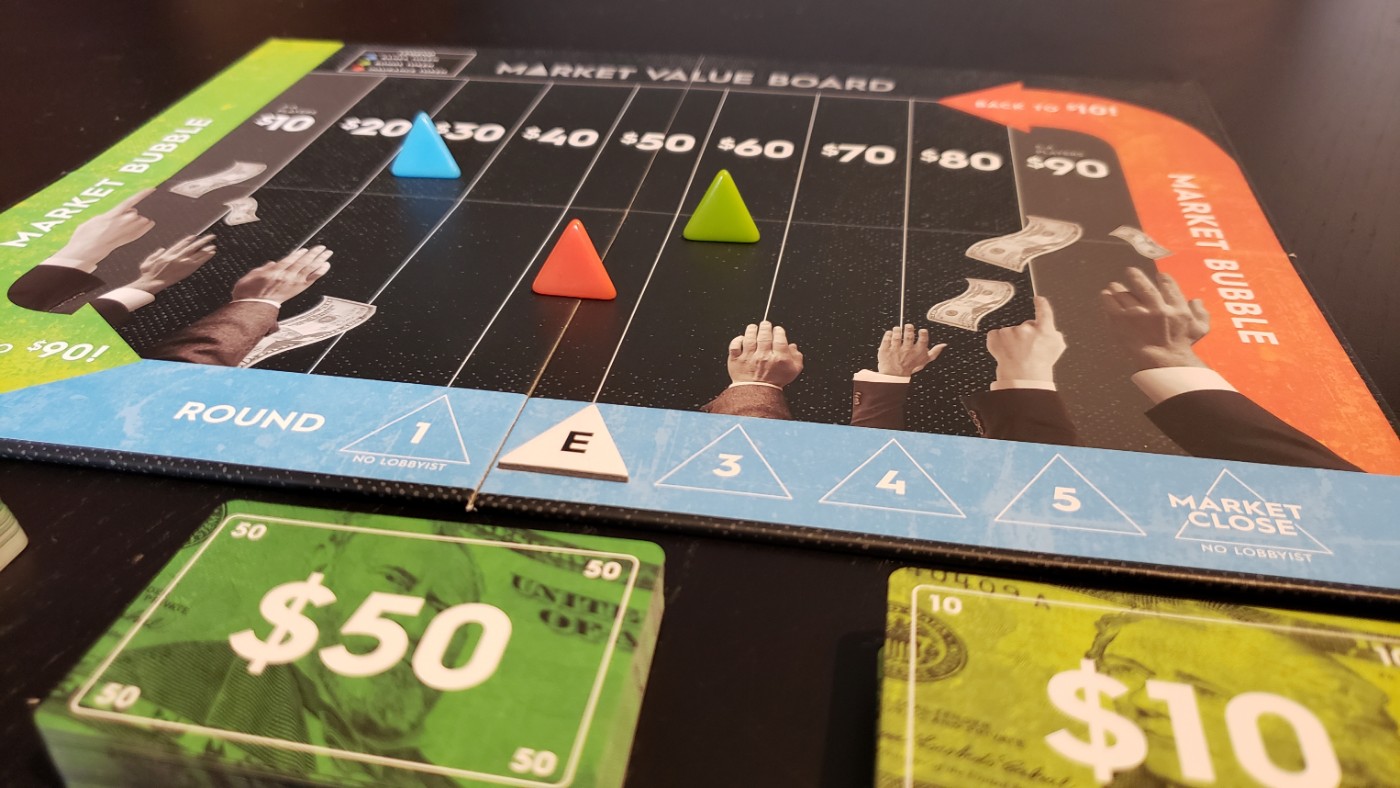
Exchange
One game that took me by surprise this year was Exchange. This stock trading game for up to 6 players was useful for us explaining how stock markets work. Players are looking at the stock they have available and making decisions to buy or sell a number of shares. Each player at the table can affect the market during the 5 rounds which can cause stocks to soar or bottom out. The game uses the names of the original founders of the New York Stock Exchange which can lead into researching these historical people. Like the strategy in Exchange, the economic lessons here are light but provide a great jumping off point for discussions on the financial structures in our country.
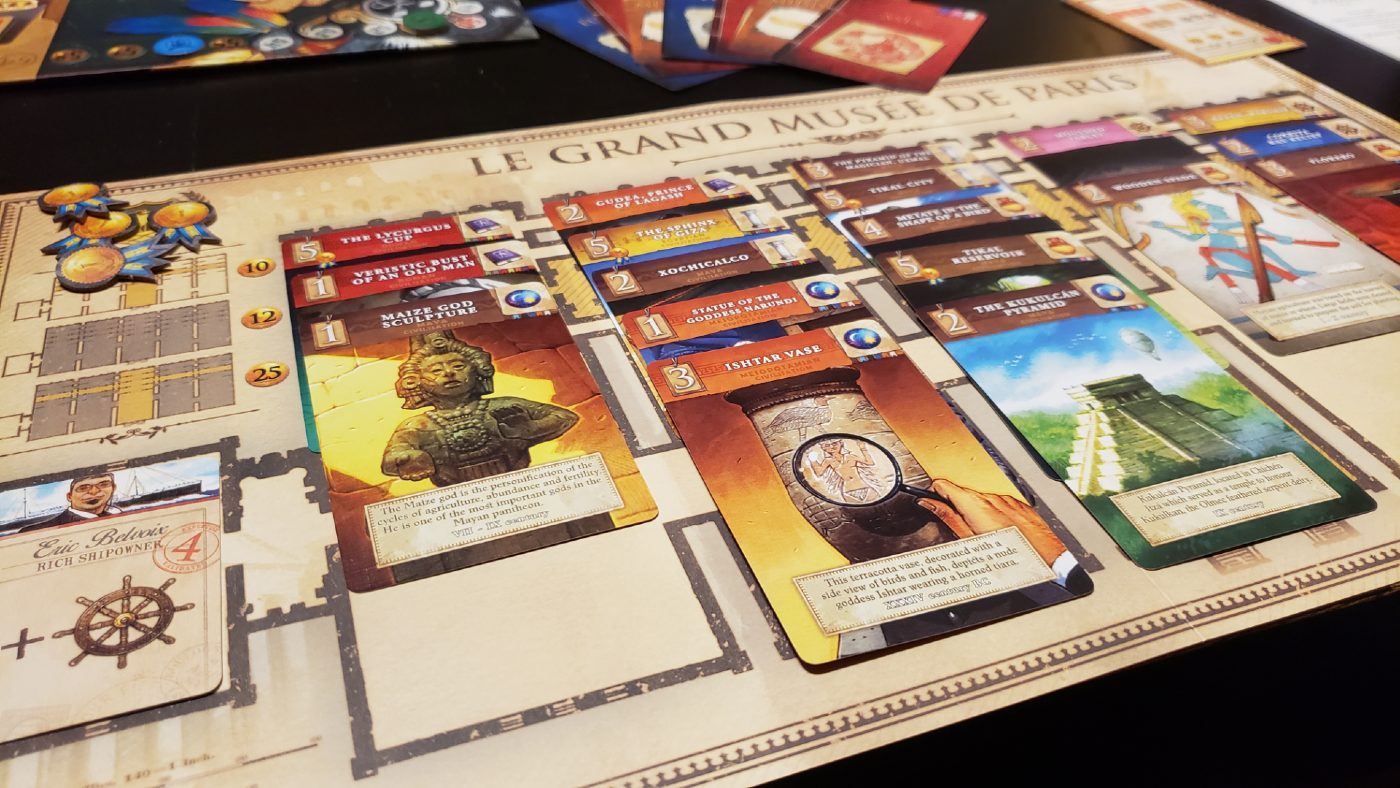
Museum
Museum is probably one of my favorite games that I’ve never written a review for. Players are working to curate a museum full of amazing artifacts from around the world. This advanced set collecting game has you managing a hand of artifacts along with being discerning about what you display in your museum. The artwork from Vincent Dutre is gorgeous as each of the 200 cards give you a little context about the real world artifact that is featured in the game. Museum provides an excellent tie in with study of history and ancient cultures and it doesn’t hurt that it’s a fantastic game.
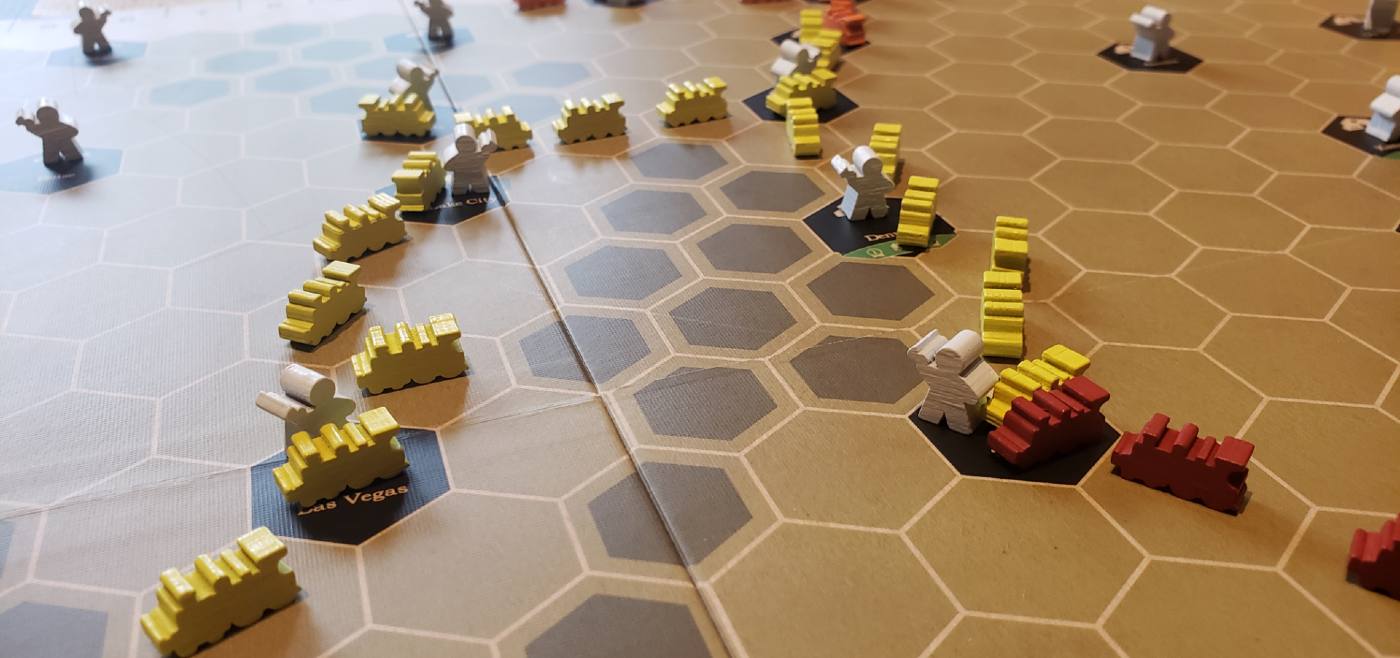
Games with Maps
Pretty much any game with a real map can be an opportunity for learning. Train games like Ticket to Ride and Ride the Rails keep kids (and me) familiar with where major cities are around the country and in another nations. Games like Pan Am and Pandemic help kids to know where countries and important cities are in relation to the rest of the world. These games are great tools to familiarize our kids with geography.
Board games can be an excellent supplement to learning something new. Do you have a favorite game that is actually educational? If so, post it in the comments below for others to find.
